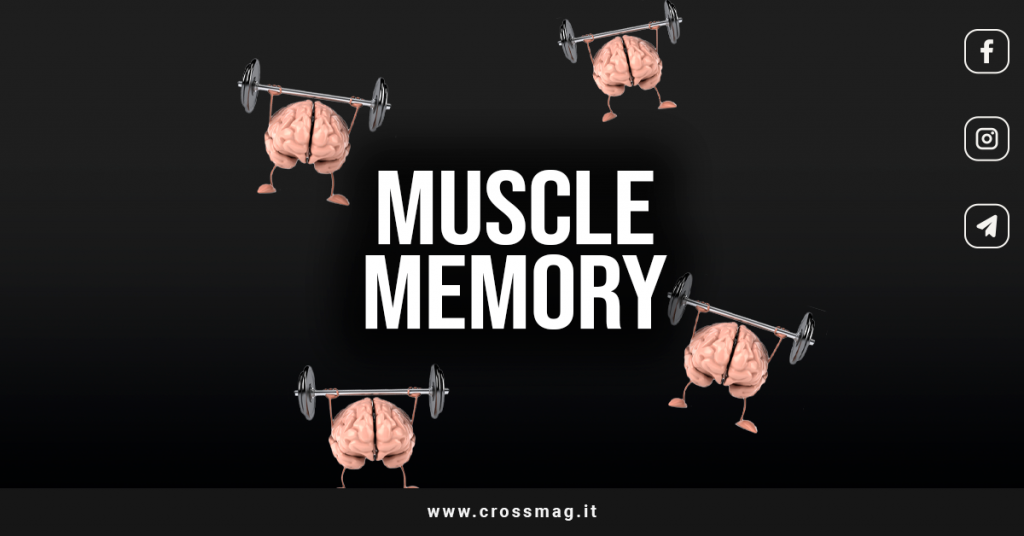According to scientific research, working out can help to build muscle even after years; once you put muscle mass through training, you may be able to build muscles again in the future too much easier.
How is it possible? Thanks to muscle memory or muscle memory! Let's find out what it is and how it works.
Index
Muscle memory: what is it?
Even the simplest daily actions involve a sequence of movements of many different muscles; for most of these actions we have had repeated practice throughout our lives, which means that these actions can be performed with ease.
These skills are often referred to as muscle memory, but that's a bit of a misnomer; although some of these skills, such as riding a bicycle, require the strengthening of certain muscles, the processes for learning and memorizing new activities occur mainly in the brain, not in the muscles.
The changes that occur in the brain during learning and memory of skills alter the information that the brain sends to the muscles, thus modifying the movements.
Muscle memory and exercise
Muscles are special cells as they are incredibly plastic; they can grow or shrink at will depending on your lifestyle; the simplest example is exercise, which can cause hypertrophy (muscle growth), resulting in muscle fibers that can be 100.000 times larger than an average cell in the body.
On the other hand, malnutrition or a sedentary lifestyle can, on the other hand, cause the reduction of muscles (atrophy). Individual cells contain only one nucleus, but during hypertrophy cell growth cannot be sustained by just one nucleus, so muscle cells actively recruit nuclei from neighboring cells.
According to recent research, the nuclei must maintain a certain relationship with the volume of the cell: hypertrophy requires more nuclei, while atrophy requires less; these nuclei persist during atrophy, allowing individuals to stockpile these additional nuclei in muscle cells for future use.
How to use muscle memory to your advantage
Muscle memory is a factor to consider when you want to rebuild force and muscle mass after a period of inactivity, but it is not the only one.
The speed of recovery of the lost mass it depends on your initial fitness level, time spent away from training and nutrition.
Larger muscle mass individuals who don't have access to their preferred workout will have a harder time maintaining their mass than lower mass individuals, who can still maintain their muscle mass with alternative fitness activities.
Also food intake is a very important factor to consider; if a subject is used to consuming enough calories to face workouts in the gym and suddenly stops eating so much, the calorie deficit will inevitably lead to a loss of muscle volume.
If you are forced to take a break from training, it is good anyway maintain a certain protein intake in your diet, since the protein help reduce the loss of lean mass.
And you, did you know about muscle memory? Let us know in the comments and remember to follow us on our telegram channel
SUBSCRIBE HERE TO THE TELEGRAM CHANNEL

